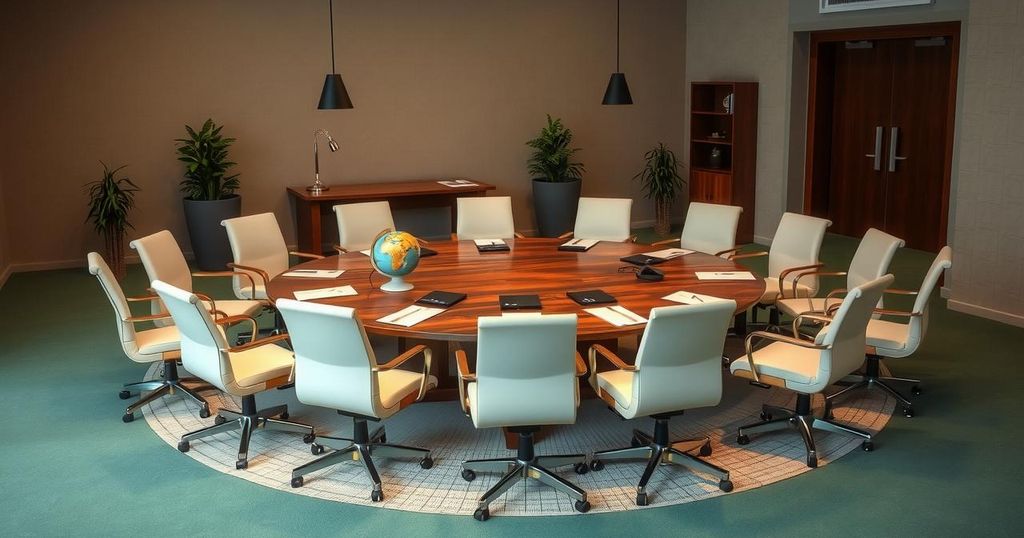Southeast Asian leaders gathered in Vientiane, Laos, to address the ongoing civil war in Myanmar and maritime territorial disputes in the South China Sea. With new leadership in several member states, the summit is poised to discuss both regional cooperation and international relations amidst rising tensions, especially concerning China’s assertiveness.
On Wednesday, Southeast Asian leaders convened in the capital city of Vientiane, Laos, for an annual summit focusing on two critical issues: the ongoing civil conflict in Myanmar and the geopolitical disputes in the South China Sea. The summit, associated with the Association of Southeast Asian Nations (ASEAN), is anticipated to include discussions with influential global partners, including China, the United States, and Russia, as part of a broader regional strategy. This year’s summit marks a significant occasion, as it is the first gathering for several newly elected leaders, including Thailand’s Prime Minister Paetongtarn Shinawatra, Singapore’s Premier Lawrence Wong, and Vietnam’s Prime Minister Pham Minh Chinh. The recent escalation of violence in Myanmar, particularly following the military coup that ousted the democratically elected government of Aung San Suu Kyi, continues to foster humanitarian crises that the ASEAN is expected to address. Myanmar’s junta is under scrutiny for failing to adhere to the ASEAN peace plan, which advocates for a ceasefire and mediation amid a civil war that has already taken the lives of nearly 6,000 individuals. In a notable development, Myanmar will be represented at the summit by a foreign ministry official, marking the first time the junta has participated since being barred from sending political representatives due to its actions. Moreover, discussions are set to revolve around maritime disputes that involve ASEAN member states and China regarding territorial claims in the South China Sea. This region remains quintessential for international trade and is characterized by competing claims among Vietnam, the Philippines, Malaysia, and Brunei against China’s assertive territorial assertions.
The ASEAN summit serves as a pivotal platform for Southeast Asian nations to address pressing regional matters, including the instability in Myanmar resulting from a military coup in early 2021, and the ongoing territorial disputes in the South China Sea—a crucial strategic waterway for global commerce. Given the varied geopolitical interests of the member states vis-à-vis China, ASEAN’s role has often been challenged by its limited influence and the complexities of individual national interests. The summit’s discussions are expected to also encompass regional cooperation on issues such as economic development and environmental sustainability.
The ASEAN summit in Laos underscores the urgency of addressing the humanitarian and political crises in Myanmar and the rising tensions in the South China Sea. While the inclusion of Myanmar officials may reflect a willingness to engage, experts express skepticism about achieving impactful resolutions. As conversations unfold among Southeast Asian leaders and global powers, the challenge remains for ASEAN to navigate its collective interests amid diverse national agendas and to offer cohesive responses to the pressing issues at hand.
Original Source: www.independent.co.uk




